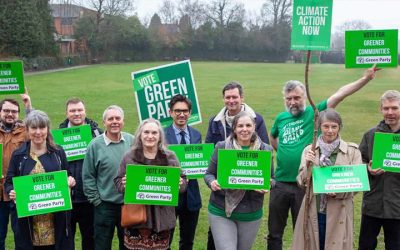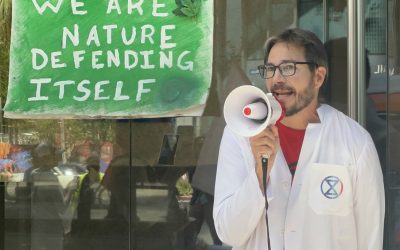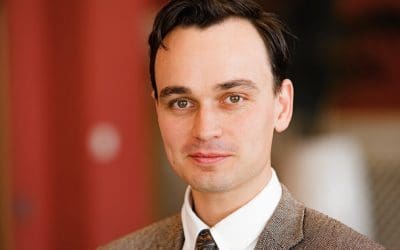Plant Based Treaty Endorsers
Scientists
Endorsers > Celebrities | Scientists | Politicians | Nobel Laureates | Athletes | Health Care | Organizations | Education | Businesses | Cities
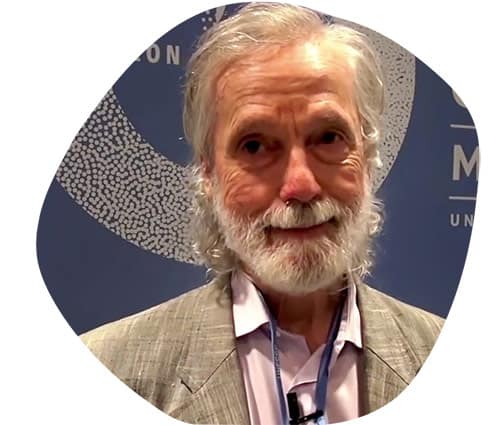
Dr. Peter Carter
IPCC Expert Reviewer
Read Peter's bio
Dr. Peter Carter is an expert IPCC reviewer, with highly-regarded publications on global climate change science, climate change impacts, Arctic climate change, risk assessment and biodiversity. Dr. Carter is a retired medically trained doctor and director of the Climate Emergency Institute, with a background in environmental health protection policy.
The most effective, definitely effective, immediately effective, readily doable action that everybody in the world can do, is go vegan. In theory, we can all do that. If we do that, emissions drop immediately.

Dr. Alison Green
Cognitive Psychologist and Expert on Human Learning
Read Alison's bio
Alison is currently Executive Director of the Scientists Warning Foundation and has advocated for Extinction Rebellion since its inception. She co-edited the popular Extinction Rebellion book ‘This is not a Drill’. She gave a joint presentation on climate change with the late Stuart Scott to the Foresight Group at the European Commission in 2018, which has since received over 100K views on Scott’s YouTube channel. She gathered further support for climate activism from the international community and spearheaded a call to action from over 1,000 UK academics.
Alison was active in the school climate strikes, writing a press letter supported by numerous academics. She co-authored a widely cited scientific paper supporting school climate strikes, published in the international journal, Science. She was a keynote speaker at London’s Climate Action event (2019), and is an expert witness to the UK Climate Commission for Higher and Further Education.
Alison spoke at COP 26, as a panelist at the Coalition People’s Summit, along with Scientists for XR and Scientists for Global Responsibility. She is a member of the rewilding campaign group, Wildcard and is the Academic Lead for Faculty for a Future.
I support the Plant Based Treaty because switching to a plant-based diet is one of the most effective things we can do to improve both our own health and that of the planet.
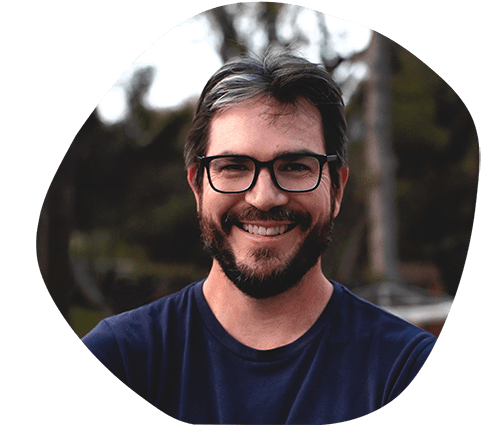
Dr. Peter Kalmus
Climate Scientist and Activist
Read Peter's bio
Peter Kalmus is a climate scientist and activist.
Earth breakdown requires urgent action, and the animal agriculture and fossil fuel industries are the two biggest causes. Rapidly reducing animal agriculture and shifting humanity to a plant-based diet is one of the best, easiest, and fastest things we can do to save the planet. It will also buffer food security in a time of increasing crop failures due to global heating. The world needs a Plant Based Treaty.

Barika Göncü
Associate Professor
Read Barika's bio
Communication Consultant & Faculty Member at the Faculty of Communication (Istanbul Bilgi University).
The climate crisis calls for change from individuals, institutions and decision makers. The activities of the global animal agriculture industry are among the main causes of the climate crisis. While consumers are reviewing their eating habits, producers should also turn to alternative business models and switch to plant based nutrition before it is too late.
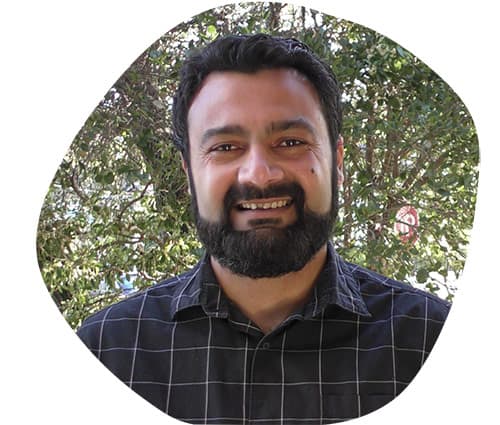
Nilang Gor
Senior Scientist
Read Nilang's bio
Nilang Gor is a Senior Scientist in the field of genetic disorders and holds M.S. in Cellular and Molecular Biology. Nilang also founded Cultivate Empathy for All, an organization which promotes empathy as a tool to address global challenges. As a systems thinker, he believes that we live in a highly interconnected ecosystem, where our well-being is interdependent on fellow humans, non-human animals, and the environment. Nilang thinks our ignorance of this interdependence has created unsustainable animal agriculture systems which are now impacting our environment, public health, as well as social and racial equity. He mobilizes community members to educate their city lawmakers on the negative impacts of animal-based food systems on various aspects of our society and environment, and promote local, sustainable policies and programs.
I endorse the Plant Based Treaty because it is rooted in the scientific approach of “One Health” – the health of people is interconnected with the health of animals and our shared environment.
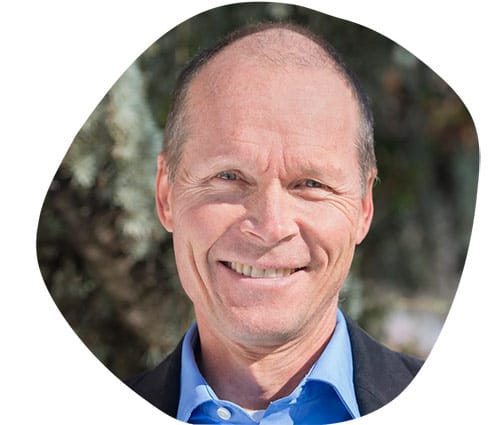
Jonathan Balcombe
Ethologist and Author
Read Jonathan's bio
Jonathan Balcombe is an ethologist and author. He is formerly Director of Animal Sentience with the Humane Society Institute for Science and Policy, and Department Chair for Animal Studies with Humane Society University, in Washington, DC.
As a major contributor to climate change, pandemics, biodiversity loss, and animal suffering, animal agriculture has no place in forward-thinking policy and action. We must invest in the empowerment of communities to thrive on eco-friendly plant-based agriculture.

Danny Harvey
IPCC Lead Author, Professor
Read Danny's bio
Danny Harvey is Professor in the Department of Geography at the University of Toronto. He studied Geography at the University of British Columbia (B.Sc.) and University of Toronto (M.Sc. & Ph.D.), obtaining his Ph.D. in 1986.
Dr. Harvey pursues research in the areas of computer climate modelling as well as options to reduce emissions of greenhouse gases associated with energy use. His modeling work is focused on understanding past climatic changes and projection of future climatic change due to emissions of greenhouse gases, with a particular emphasis on coupled climate-carbon cycle models and the impacts of different future global energy scenarios.
He has published three dozen articles, served as lead author on IPCC Technical Report No.2 (An Introduction to Simple Climate Models Used in the IPCC Second Assessment Report), and has published two books.
From 1989 to 1995, Dr. Harvey served as co-chair of the City of Toronto’s Special Advisory Committee on the Environment which was instrumental in setting up the City of Toronto’s greenhouse gas emission reduction programme – the first city in the world to adopt a programme to reduce greenhouse gas emissions at the local level.
I endorse the Plant Based Treaty because it addresses the single largest sources of GHG emissions in a two-pronged manner that parallels exactly what needs to be done with regard to fossil fuel emissions: freezing further development, and unwinding existing intensive industrial systems that produce cheap meat and dairy at the expense of enormous animal suffering.

Ray Monk
Philosophy and Biographer of Ludwig Wittgenstein, Bertrand Russell and Robert Oppenheimer
Read Ray's bio
Ray is a British biographer who is renowned for his biographies of Ludwig Wittgenstein, Bertrand Russell, and J. Robert Oppenheimer. He is emeritus professor of philosophy at the University of Southampton, where he taught in various capacities from 1992 to 2018.
Every day it becomes more important that we move towards a plant-based diet. Our current meat and dairy heavy diet is simply not susptainable, and in attempting to satisfy it we are causing enormous ecological damage and making it practically impossible to meet our climate targets. If the Plant Based Treaty were implemented, the world would be a much better place. We owe it to future generations to do everything we can to make that happen.

Dr. Kurt Schmidinger, Ph.D
Geophysicist and Founder of Future Food
Read Kurt's bio
Dr. Kurt Schmidinger is food scientist and geophysicist, founder of futurefood.org, member of the advisory boards of Good Food Institute, Albert Schweitzer Stiftung and other NGOs, affiliate at FEWD at the University of Vienna – and activist.
We have one option that is essential to reach the 1.5°C climate target – to go mainly plant based: It would reduce our livestock emissions and heavily reduce our area demand, which gives regrowing natural vegetation the chance to uptake much of our carbon emissions from the past. Besides this relief for the climate, it would as well help us in fighting future pandemics or cruelty against animals, and in saving functional antibiotics, water, soils, biodiversity and world nutrition.

William B. Orcutt
Capt. USAF Ret. BSEE University of Missouri, MSEE Air Force Institute of Technology
Read William's bio
William B. Orcutt Capt. USAF Ret. BSEE University of Missouri, MSEE Air Force Institute of Technology
The public needs to know that we cannot address climate change without moving away from fossil fuels. Equally, we cannot reach our climate targets without tackling global food production. The Plant Based Treaty influences people to take independent climate crisis action by changing their diet.
More scientists
Jennifer Black, PhD, Microbiology & Immunology; MSc, Pathobiology
Dr. Thomas Brückmann, biologist & communication designer
Pamela Fergusson, RD, PhD
Becca Franks, PhD, Research Scientist, Department of Environmental Studies, New York University
Joanna Hańderek, Associate Professor, Institute of Philosophy – Jagiellonian University
Ryszard Kulik, PhD, Club of Ecological Thought
Dr. hab. Barbara Niedźwiedzka, member of the Catholic Church, retired researcher of the Institute of Public Health, Jagiellonian University
Dorota Probucka, PhD., Professor at the Pedagogical University of Krakow, Head of the Department of Applied Ethics, Theory of Mediation and Negotiation at the Pedagogical University of Krakow, Vice-President of the Polish Ethical Society, Editor-in-chief of the scientific journal Ethics Education
Dr Hugh Martin, PhD, principal lecturer in Agricultural Science at the Royal Agricultural University
Marco Maurizi, Philosopher, PhD, writer, author of “Beyond Nature. Animal Liberation, Marxism, and Critical Theory.” Co-founder of the scientific journals “Liberazioni” and “Animal Studies. Italian Journal of Antispecism.
William Ripple, PhD. Distinguished Professor of Ecology, Oregon State University
Hakan Şentürk, Bezmi Alem University, Gastroenterology Department
Piotr Skubała, PhD, University of Silesia, Institute of Biology, Biotechnology and Environmental Protection
Professor Julia Steinberger, University of Lausanne, Switzerland, IPCC lead author AR6 WG3
Marcin Urbaniak, Associate Professor, Pedagogical University of Cracow
Gerard Wedderburn-Bisshop, B. Surv (Hons1), former Principal Scientist, Qld Natural Resources
Jean Ziegler, Swiss former professor of sociology at the University of Geneva and the Sorbonne, Paris, and former vice-president of the Advisory Committee to the United Nations Human Rights Council.
Dr. Alexandra Isfahani-Hammond
Chloe Taylor, Professor of Women’s and Gender Studies, University of Alberta
Laurie Adkin, Professor [Political Science and Environmental Studies] University of Alberta
José Moisés Martín Carretero, Professor of Economics. Faculty of Science and Technology, University Camilo José Cela
Barton Rubenstein, PhD, Mother Earth Project cofounder
Jonathan M. White, PhD, Assoc. Professor of Sociology, Bentley University
John Packer, Associate Professor (Law), University of Ottawa
Dr. J. David Spence, Professor of Neurology and Clinical Pharmacology, Western University
Carla Steffen, Veterinarian
Dr. Kristiina Visakorpi
Bastiaan Rutjens, PhD
Dr Holly Sitters, Ecologist, The University of Melbourne
Jane Hindley, Senior Lecturer in Interdisciplinary Studies, University of Essex
Kathrin Herrmann, Johns Hopkins University Center for Alternatives to Animal Testing
Patrick Alberti, M.A.
Dr Corey Lee Wrenn
Dr. Anna Perreira
André Bittar, Research Associate, King’s College London
Jans Henke, MSc
Dr. Fatih Uenal, Center for Affective Sciences, University of Geneva
Jeroen Melief, PhD
Hon Prof Colin D Butler, National Centre for Epidemiology and Population Health, Australian National University
Jill Belch, Professor of Medicine and Lead, Tayside Air Pollution Research Project
Dr. Heather Davis
Dr. Yuri Engelhardt
Dr. Sara Gabrielsson, Senior Lecturer, Lund University Centre for Sustainability Studies
Cameron Roberts, PhD
Paul Berger, Associate Professor (Education), Lakehead University
Pere Pons, Associate Professor, University of Girona
Dr Charlie Gardner
Dr A J Perrin
Professor James Renwick
Charles Ross DO
Brenda Dobia, PhD. Psychologist, Social Ecologist, Adjunct Fellow Western Sydney University
Annika Linde, DVM, PhD, MPH. Western University of Health Sciences, California
David Crookall, PhD, Inter- Ocean-Climate School (IOCS), Ocean Open University
David Howden, PhD
Cameron Brick, PhD, University of Amsterdam
Anoop Shah
Marc Bekoff, PhD.
Nicholas Carter, ecologist, researcher and co-founder of PlantBasedData.org
Professor Alexandra Cook FLS
Dr. Charles Greene
Dr. Mark Terry
Carl Thomas
Mark Diesendorf, Faculty of Arts Design & Architecture, UNSW Sydney
Prof. Imre Szeman
Gerard Wedderburn-Bisshop, B. Surv (Hons1), former Principal Scientist, Qld Natural Resources
Celia Deane-Drummond, MA (Cantab), PhD (Plant Science), PhD (Theology
Dominik Linn, PhD Candidate in Industrial Mathematics (Fraunhofer ITWM and TUK)
Carolin Schellhorn, PhD.
Dr. Tushar Mehta
Dr. Amanda Boetzkes, Professor, Contemporary Art History and Theory, University of Guelph
Diana Molina, LCG. (Genomic Sciences)
Cassandra Meisel Clarke, MSc. Biochemistry, MSc. Epidemiology
Didem Varol, RD
Lena Hannah Dogra, PhD Candidate in Physics, University of Cambridge
Latest Scientist News
The Fishing Industry Must Be Held Accountable
By Anne Casparssan
Edinburgh agrees a Plant Based Treaty Action Plan
By Anne Casparssan
How a small Sussex town became the first in Europe to endorse the Plant Based Treaty
By Anne Casparssan
Plant Based Treaty Endorser Profile: Dr. Peter Kalmus: Sparking A Climate Revolution
By Miriam Porter
Halifax Ecologist says link between climate crisis and Nova Scotia wildfires must be addressed
Media Contacts:
[email protected]
[email protected]
Edinburgh and Stockholm could rewild 571,000 hectares of land by adopting plant-based diets, says Oxford academic Dr. Joseph Poore
Media Contacts:
[email protected]
[email protected]



